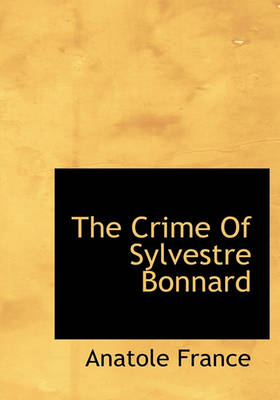The Nobel Prize Collection
1 primary work
Book 2
This charming story portrays the literary life of Paris in the nineteenth century. Sylvestre Bonnard, a retiring philologist and bachelor, upon finding the daughter of his long ago love resolves to provide for her and supply her with a dowry. However, she already has a guardian. After a series of incidents, and learning that she is being badly treated, Bonnard is driven to abduct her. He escapes prosecution and eventually is appointed her guardian. When Jeanne, his ward, marries, he sells his treasured library to secure her dowry, guiltily withholding a few volumes, and retires to the country. The Crime of Sylvestre Bonnard views the eighteenth century as a golden age far more so than the nineteenth century. Its main character, Sylvestre Bonnard, was the first of many fictional individuals, who represented France's own qualities at the time. The work was praised for its graceful writing style and won the author a prize from the French Academy--for its moral as well as literary characteristics. Critics have been divided over just what the crime is referred to in the title. Is it the crime of abduction of which Bonnard is guilty, or the crime of retaining a few beloved books from auction, or is his rescue of Jeanne from mistreatment a poignant irony, making his crime one of benevolence in an inherently malignant social order? It remains the reader's call.
